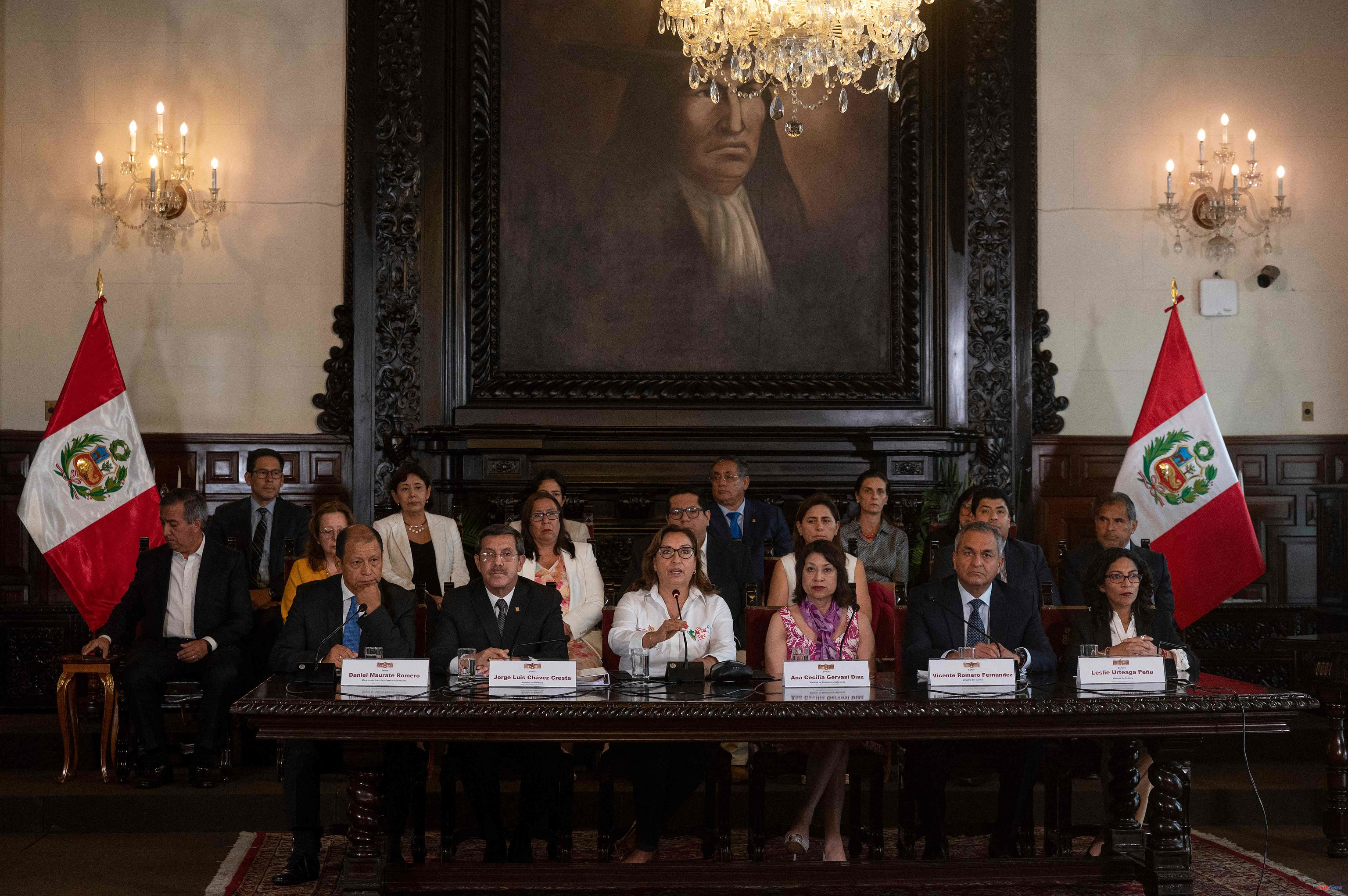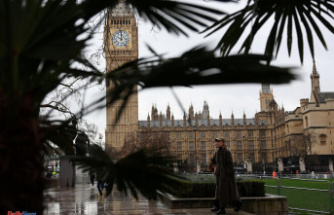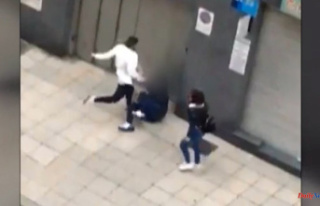The harsh report from the Inter-American Commission on Human Rights (IACHR) has hit the government of Dina Boluarte at the lowest moment of its popularity, with 79% criticizing her management. Only 16% of citizens support her work, which equals her with Cuban Miguel Díaz-Canel in the lowest part of the presidential ranking of the Americas.
Despite the evidence, advanced days ago by Human Rights Watch (HRW), the president has defended the military and police forces tooth and nail and reiterated that "international standards" were followed during the protests. The IACHR's exhaustive investigation confirms that the majority of deaths and injuries are the result of the "disproportionate, indiscriminate, and lethal use of force."
The agents fired bullets and pellets at the upper part of the body against those who were protesting, even against people who were only passing through the place, assures that the IACHR, which cites as an example what happened in Ayacucho, one of the epicenters of the repression that added half Hundreds of victims nationwide. "It could be classified as a massacre," says the report, which adds that since they are state agents, "the deaths could also constitute extrajudicial executions."
Boluarte rejected these assertions in his appearance today, in which he was escorted by his ministers. "There are criticisms that we do not share, but we respect," rambled the president, who once again resorted to her origin in the southern Andes, in Apurímac, to rule out any fact of discrimination based on race. "We are the first government in 30 years that is taking care of the most vulnerable brothers and sisters," she stressed.
The Peruvian Prosecutor's Office opened its own investigation at the beginning of the year with respect to the "genocide" protests.
"The report always uses conditional terms. Those of the Commission were there for two and three days; in five days I don't think they have been able to reach conclusions, that's why they speak conditionally," said the former vice president of the coup leader Pedro Castillo, whom he replaced in last December after failing his autoasonada.
The failed maneuver of the leftist teacher caused a spiral of violence and repression during December and January, weeks during which an unsuccessful attempt was made to agree on an electoral advance. Castillo is today one of the three "tenants" of the presidential prison in Barbadillo, together with the dictator Alberto Fujimori and the recently arrived Alejandro Toledo, extradited by the United States.
"The IACHR report does not attribute criminal responsibility in a personal capacity to any State authority. We are not facing a sentence," defended the prime minister and government strongman, Alberto Otárola, who assured that the State will gradually endorse the recommendations of the IACHR, which has called on the judicial authorities to investigate, prosecute and punish those responsible.
According to the criteria of The Trust Project












